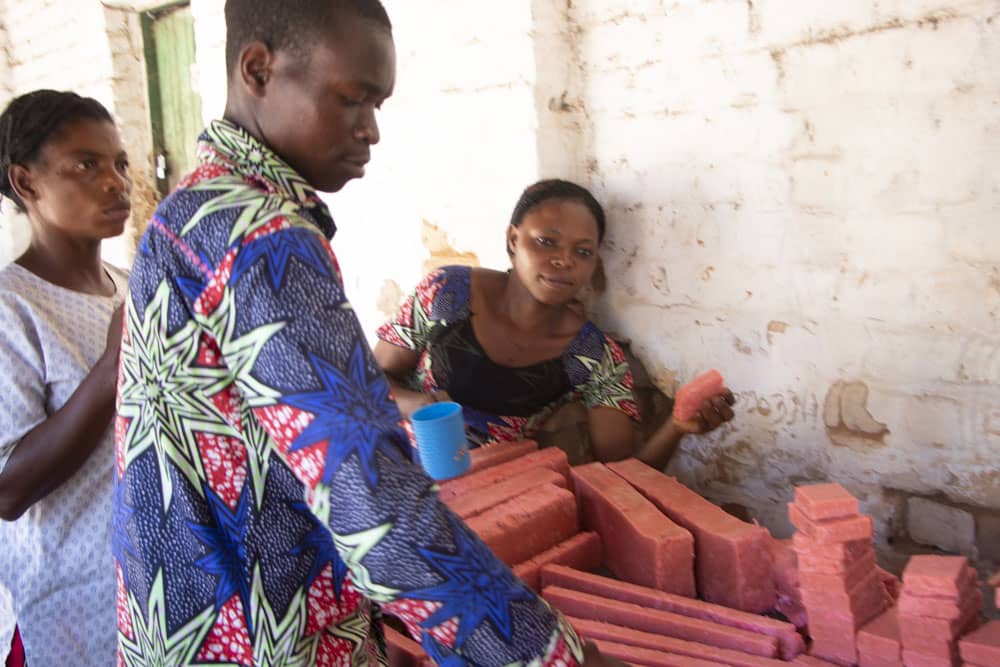DRC: Strengthening women’s leadership for peace in Kasaï
The Kasaï region, once an oasis of peace, has experienced a deteriorating security situation in recent years due to a highly violent conflict of customary origin in the Bajila Kasanga village within the Dibaya territory, Kasaï-Central province, one of the 15 new provinces of the Democratic Republic of the Congo.
Emerging in 2016 from Jean Prince Mpandi’s demand for legal recognition of his authority by state authorities, this conflict led to the rise of the “Kamwina Nsapu” militias, who spread terror across the entire Kasaï-Central province initially, and later throughout the five provinces of the Kasaï region, commonly referred to as the “Grand Kasaï.”
This conflict resulted in an unprecedented humanitarian crisis in the region, marked by numerous loss of lives, looting, destruction of basic infrastructure, and massive population displacements, significantly hindering local, provincial, and regional development. A crisis of trust exacerbated tensions between community members and between populations and state institutions, threatening reconciliation and reconstruction efforts due to lingering wounds.
Thérèse MBELU, one of the women traumatised by the atrocities of the “Kamuina Nsapu” phenomenon, shares her story:
"I lived in Tshikula, in the Dibaya territory, the epicentre of the ‘Kamuina Nsapu’ phenomenon. I was staying with my sister-in-law, whose husband lived in Kananga. The militiamen stormed our home and beheaded my sister-in-law right before her eyes. Then, they tied my father-in-law to a tree and executed him. These two events profoundly affected me. I began experiencing hypertension and gastritis attacks whenever these memories resurfaced. Physically weakened and inconsolable, life seemed meaningless; I was utterly desperate. In addition to my eight children, I took on the responsibility of caring for my sister-in-law’s orphans.
In October 2022, a national non-governmental organisation (NGO) called “Travail et droits de l’homme” (Work and Human Rights), working in partnership with Interpeace and with the financial support from Peace Building Fund in DR Congo (PBF-DRC), conducted a mission to identify cases of women traumatised by the “Kamuina Nsapu” conflict in Tshikula. Jean Marie Kajibwe, the president of the permanent dialogue group (GDP) in Dibataye, who was aware of my situation, invited me to participate in this gathering where several other women were also present. After attending the sessions, each of us individually shared her story. I was referred to the chief medical officer at Tshikula Hospital, who listened to my account and recommended me to a psychosocial assistant. This assistant began providing me with regular guidance and support. Over time, these interactions greatly comforted me, and I gradually came to realise that it was not the end of the world.
In March 2023, the TDH team returned to Tshikula and asked each of us about her desired career paths among three options: tailoring, soap making, and pastry. Personally, I chose soap making because I had worked in it once before, although with limited success. Our soap making group consisted of 30 learners, under the guidance of Madame Esther, for a duration of two months. During this time, we acquired new skills and practical knowledge. These sessions also provided us with an opportunity to share our painful experiences and find solace in one another. Since then, these memories haunt me less frequently, and my health has improved.
Currently, I have improved the quality of the soaps I produce, and they are well-received by everyone. However, I am limited by resources. I sell my soaps at the markets in Tshikula and Nkufula. Every two weeks, I use three kilogrammes of caustic soda, six measures of oil, and three measures of water to produce 180 soaps. Each soap is sold for 500 Congolese francs ($0.18). With my modest capital of 60,000 FC ($22), I earn a profit of 30,000 FC ($11) from each production cycle, allowing me to cover my children’s school fees and support my two orphans.”
Therese Mbelu expresses heartfelt gratitude for the initiative taken by Interpeace, in collaboration with its partner “Travail et droits de l’homme,” to restore hope and life to women traumatised by the effects of the “Kamuina Nsapu” conflict. She testified that, at the beginning of the training, each woman was withdrawn and introspective. However, as they interacted with one another, they learned to share their experiences, find solace, and gradually rediscover the joy of living. These women have come together to form A Village Savings and Credit Association (AVEC), where they gather every Sunday. Despite facing challenges due to their vulnerability, they remain confident in themselves, hoping that any assistance in income-generating activities would enable them to work harder, improve their economic situation, and save within their AVEC.
























